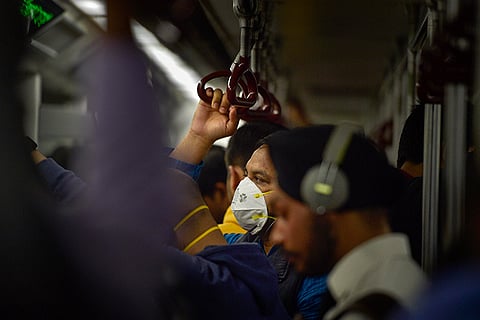

Across the world, concerts and sporting events have been cancelled, schools are closed, and work from home advisories have been sent to legions of workers. These precautions are rooted in a public health defense to fight the coronavirus pandemic — social distancing.
Social distancing is the act of maintaining at least one metre (or 3 feet) between yourself and anyone who is coughing or sneezing, according to the World Health Organisation. (The US Centre for Disease Control recommends at least six feet or two metres).
“When someone coughs or sneezes they spray small liquid droplets from their nose or mouth which may contain virus. If you are too close, you can breathe in the droplets, including the COVID-19 virus if the person coughing has the disease,” the WHO has noted.
People are always being widely encouraged to practice good hygiene. This includes washing hands regularly, using 60% alcohol-based sanitisers, avoiding touching your face, eyes, nose and mouth, and covering your nose and mouth while coughing and sneezing.
The WHO has been urging people to exercise social distancing since the early stages of the COVID-19 outbreak, but in recent days, the full effect of the term is being seen. Many believe that social distancing will be one of the most important ways to stop the spread of the coronavirus.
However, social distancing doesn’t mean avoiding contact at all costs. People must be wary about their interactions with others and the activities they engage in, reports say. “Most of the infections have actually occurred during social activity, so it requires some relatively intimate connection with individuals,” Gerardo Chowell, a public health expert in the US, told BuzzFeed. “A conversation that lasts for a few minutes, for example. Maybe you are sharing the same restroom.”
Though coronavirus is not sexually transmitted, experts say sex and kissing could significantly increase chances of infection due to close proximity. However, you can still date, though experts suggest exercising caution in these situations as well. If you’re feeling unwell, it is probably best to cancel.
Studies conducted on social distancing appear to prove its efficacy. A 2011 study which found that the closure of schools had reduced the spread of influenza during a pandemic in 2009 in Mexico. Others have pointed to the devastating effects of the 1918 parade in Philadelphia, USA, which 2,00,000 people attended amidst a growing number of Spanish flu cases. By the end of that week, around 4,500 people died from the flu.
Countries are also wising up to the importance of social distancing. The United Kingdom is planning to take on “population distancing strategies such as school closures, encouraging greater home working, reducing the number of large-scale gatherings,” according to The Guardian. In India, almost all types of visas, including tourist, have been suspended until April 15 in an effort to control the infection coming into the country.